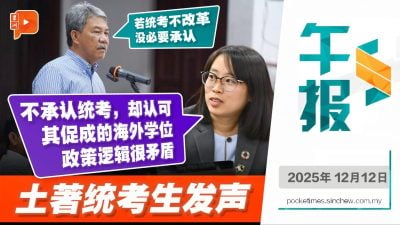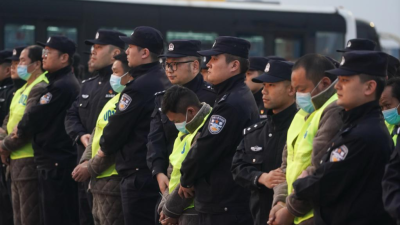
The Urban Renewal Bill hit a sudden brake in parliament – debate and voting postponed until October, leaving behind a string of question marks.
The bill was initiated by the Ministry of Housing and Local Government, led by Nga Kor Ming, with the DAP going all out to push it through.
The bill carries politically correct justifications: it can spur urban development, improve residents’ quality of living, and even draws on successful models from countries such as Singapore.
Yet in Malaysia, it has been dogged by controversy, facing doubts and opposition from various quarters of society.
Professional bodies like the Bar Council and NGOs such as residents’ associations oppose the bill, arguing that it grants excessive powers to the minister, lacks protection for existing residents’ rights and could benefit developers at their expense.
The opposition bloc is united in rejecting the bill. Perikatan Nasional parties Parti Pribumi Bersatu Malaysia and PAS believe that, if passed, the law will undermine urban Malay kampungs, raising fears that Malay residents could be driven out, thereby changing the demographic structure of cities. PN-led states—Kelantan, Terengganu, Kedah, and Perlis—further regard it as an encroachment on state governments’ authority over land.
Just as the government was ready to rely on its parliamentary majority to bulldoze the Bill through, Umno suddenly pulled back. Its deputy president Datuk Seri Mohamad Hasan called for postponement. This wasn’t just a withdrawal but a sabotage.
A bill tabled in Parliament must first be approved by the Cabinet. For such an important bill, it is inconceivable that Umno ministers did not agree to it.
In other words, Umno says one thing in Cabinet and does another in Parliament. If that’s not backstabbing, what is?
Umno’s last-minute U-turn was also a slap in the face for the DAP.
One slap after another. Umno Veteran Club secretary Datuk Mustapha Yaakub wasted no time stressing that this proved Umno is not controlled by the DAP. Though Mustapha isn’t a top Umno leader, his remarks reflect what many in the party’s upper ranks wish to say but cannot openly voice.
If that weren’t enough, Umno went a step further. It set up a committee led by vice-president Datuk Seri Johari Abdul Ghani to study the bill and is preparing to convene a “Urban Malay Congress” to deliberate on the issue.
Participants will not only include Umno members and Malay NGOs, but also other Malay parties. The outcomes will be submitted to Prime Minister Datuk Seri Anwar Ibrahim.
Thus, the Urban Renewal Bill has been reframed as part of the Malay agenda. Instead of handling the matter within the Unity government, Umno is taking it outside, even aligning with the opposition PN to pressure the government into concessions.
A bill already approved by Cabinet has been pulled back, now pending Umno’s internal review and the results of the “Urban Malay Congress.” Umno is telling the nation: we are the real boss.
Now imagine—could the DAP do the same? Could it reject a bill tabled by an Umno minister, and rally other groups, including Chinese associations, MCA and Gerakan, to declare their opposition? The answer is impossible.
Umno’s move has set a precedent and posed a challenge to the “unity” of the Unity Government. If it proceeds with PN through the “Urban Malay Congress,” the government’s image will suffer greatly, and divisions may even emerge.
Mohamad’s action also reveals internal conflicts within Umno. As seen in the earlier national flag controversy, he sided with Dr Muhamad Akmal Saleh, leaving Umno president Datuk Seri Ahmad Zahid Hamidi embarrassed.
This time, he has again taken a dissenting stand, once more putting Zahid in an awkward position.
After all, if Umno must take a stand, it should be voiced by its president—who is also Deputy Prime Minister Zahid—not by the Foreign Minister, who has no direct relevance to the issue.
For the DAP, as the party with the most parliamentary seats in the Unity Government, having to compromise with Umno, the third-largest party, is difficult to justify to its supporters. If it is forced to accept the resolutions of the “Urban Malay Congress,” it will be even more demoralizing.
In hindsight, it would have been better to pre-empt Umno’s move by consulting with other parties, professional bodies, and NGOs first, gathering broad input to reach consensus before tabling the bill in parliament. That would have won far more public support and goodwill.
ADVERTISEMENT
ADVERTISEMENT








































